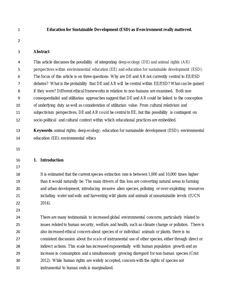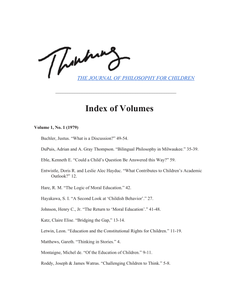Control methods are applied worldwide to reduce predation on livestock by European red foxes (Vulpes vulpes). Lethal methods can inflict suffering; however, moral debate about their use is lacking. Non-lethal methods can also inflict suffering and can unintentionally lead to death, and yet both the welfare consequences and ethical perspectives regarding their use are rarely discussed. The aim of this study was to investigate the animal welfare consequences, the level of humaneness, the ethical considerations and the moral implications of the global use of fox control methods according to Tom Regan’s animal rights view and Peter Singer’s utilitarian view. According to Regan, foxes ought not to be controlled by either lethal or potentially harmful non-lethal methods because this violates the right of foxes not to be harmed or killed. According to Singer, if an action maximises happiness or the satisfaction of preferences over unhappiness or suffering, then the action is justified. Therefore, if and only if the use of fox control methods can prevent suffering and death in livestock in a manner that outweighs comparable suffering and death in foxes is one morally obligated t
MULTIFILE

The recent shift towards the interdisciplinary study of the human-environment relationship is largely driven by environmental justice debates. This article will distinguish four types of environmental justice and link them to questions of neoliberalism and altruism. First, environmental justice seeks to redress inequitable distribution of environmental burdens to vulnerable groups and economically disadvantaged populations. Second, environmental justice highlights the developed and developing countries’ unequal exposure to environmental risks and benefits. Third, temporal environmental justice refers to the issues associated with intergenerational justice or concern for future generations of humans. In all three cases, environmental justice entails equitable distribution of burdens and benefits to different nations or social groups. By contrast, ecological justice involves biospheric egalitarianism or justice between species. This article will focus on ecological justice since the rights of non-human species lags behind social justice debates and discuss the implications of including biospheric egalitarianism in environmental justice debates. https://doi.org/10.1186/2194-6434-1-8 https://www.linkedin.com/in/helenkopnina/
MULTIFILE

Er zijn steeds meer kinderen die te dik zijn en te weinig bewegen. Ook zijn er steeds meer kinderen met een motorische achterstand. Op allerlei manieren wordt hier aandacht aan besteed. Wat zijn de trends rondom gezondheid? En wat is het belang van de ontwikkeling van motorische vaardigheden en de wijze waarop de motorische ontwikkeling gemonitord kan worden in de lichamelijke opvoeding?
DOCUMENT

In this article we focus upon a division between generalized schools of philosophical and ethical thought about culture and conservation. There is an ongoing debate playing out over conservation between those who believe conservation threatens community livelihoods and traditional practices, and those who believe conservation is essential to protect nonhuman species from the impact of human development and population growth. We argue for reconciliation between these schools of thought and a cooperative push toward the cultivation of an environmentally-focused perspective that embraces not only social and economic justice but also concern for non-human species. Our goal is to underline the ethics and tangible benefits that may result from combining the cultural data and knowledge of the social sciences with understanding of environmental science and conservation. We highlight instances in which social scientists overlook their own anthropocentric bias in relationship to ecological justice, or justice for all species, in favor of exclusive social justice among people. We focus on the polemical stances of this debate in order to emphasize the importance of a middle road of cooperation that acknowledges the rights of human and nonhuman species, alike. In conclusion, we present an alternative set of ethics and research activities for social scientists concerned with conservation and offer ideas on how to reconcile the conflicting interests of people and the environment. https://doi.org/10.1016/j.biocon.2015.01.030 https://www.linkedin.com/in/helenkopnina/
MULTIFILE

In human-controlled environments, areas of wild plants are 'translated' into cultivated landscapes to accommodate social, cultural and economic needs. This article explores indoor, agricultural and (sub)urban landscape in the Netherlands, focusing on the use of plants both indoors and outdoors, and reveals anthropocentric, instrumental and unsustainable practices. The article also presents suggestions for alternative, more ethical and sustainable ways of relating to plants in the Netherlands and beyond. https://www.ecologicalcitizen.net/article.php?t=wilderness-plastic-plants-how-might-get-back-wildness https://www.linkedin.com/in/helenkopnina/
MULTIFILE

Immersive journalism (IJ) is often assumed to be inherently emotion-inducing. Through using inclusive technology, interaction possibilities and immersive narratives, the audience should ideally experience what feels like to be in a certain situation. However, for the most part we do not know to which extent and in what form IJ influences the experience of emotions. We wanted to investigate, whether, and if so, which characteristics of IJ are related to the experience of emotions, and which role the personality trait empathy tendency plays in this respect. This is important, as the evaluation of IJ often relies on the emotion-inducing assumption thereof. Four different experiments comparing one immersive journalistic characteristic (level of inclusion, interaction possibilities, immersive narratives) to the respective non-immersive counterpart were conducted. Results indicate that while the level of inclusion and interaction possibility increase the intensity of the experience, the immersive narrative influences the valence dimension of emotions. Additionally, empathy tendency is found to be a relevant moderator for these effects. Conclusions are threefold. First, the narrative form of IJ is key; second, the analysis of IJ needs to go beyond the level of inclusion; third, including emotions when assessing IJ is fundamental to understand its impact.
DOCUMENT

This article discusses the possibility of integrating deep ecology (DE) and animal rights (AR) perspectives within environmental education (EE) and education for sustainable development (ESD). The focus of this article is on three questions: why are DE and AR not currently central to EE/ESD debates? What is the probability that DE and AR will be central within EE/ESD? What can be gained if they were? Different ethical frameworks in relation to non-humans are examined. Both non-consequentialist and utilitarian approaches suggest that DE and AR could be linked to the conception of underlying duty as well as consideration of utilitarian value. From cultural relativism and subjectivism perspectives, DE and AR could be central to EE, but this possibility is contingent on socio-political and cultural context within which educational practices are embedded. https://doi.org/10.1016/j.envdev.2014.09.001 https://www.linkedin.com/in/helenkopnina/
MULTIFILE

The journal was a forum for the work of both theorists and practitioners of philosophical practice with children, and published such work in all forms, including philosophical argument and reflection, classroom transcripts, curricula, empirical research, and reports from the field. The journal also maintained a tradition in publishing articles in the hermeneutics of childhood, a field of intersecting disciplines including cultural studies, social history, philosophy, art, literature and psychoanalysis.
DOCUMENT

This article explores how concern about animal welfare and animal rights relates to ecological citizenship by discussing student assignments written about the Dutch Party for Animals or PvdD. ‘Animal welfare’, ‘animal rights’, and ‘ecological citizenship’ perspectives offer insights into strategic choices of eco-representatives and animal rights/welfare advocates as well as educators. The assignments balance animal issues with socio-economic ones, explore the relationship between sustainability and ethics, and attribute responsibility for unsustainable or unethical practices. Analysis of student assignments reveals nuanced positions on the anthropocentrism-ecocentrism continuum, showing students’ ability to critically rethink their place within larger environmental systems. Some students demonstrated compassion for nonhumans, indicating that biophilia is evenly distributed among different groups of students. This article finds that fostering pro-environmentalism and animal welfare or rights requires the deepening of the debate contesting but also connecting key issues in sustainability and ethics. This analysis can be valuable for political parties representing nonhumans, or for education practitioners in getting students to think about the challenges in human-environment relationships and for advancing support for ecodemocracy. https://ro.uow.edu.au/asj/vol8/iss1/10/ LinkedIn: https://www.linkedin.com/in/helenkopnina/
MULTIFILE

Social scientists of conservation typically address sources of legitimacy of conservation policies in relation to local communities’ or indigenous land rights, highlighting social inequality and environmental injustice. This chapter reflects on the underlying ethics of environmental justice in order to differentiate between various motivations of conservation and its critique. Conservation is discussed against the backdrop of two main ethical standpoints: preservation of natural resources for human use, and protection of nature for its own sake. These motivations will be examined highlighting mainstream conservation and alternative deep ecology environmentalism. Based on this examination, this chapter untangles concerns with social and ecological justice in order to determine how environmental and human values overlap, conflict, and where the opportunity for reconciliation lies, building bridges between supporters of social justice and conservation. https://www.springer.com/gp/book/9783319713113#aboutBook LinkedIn: https://www.linkedin.com/in/helenkopnina/
MULTIFILE
